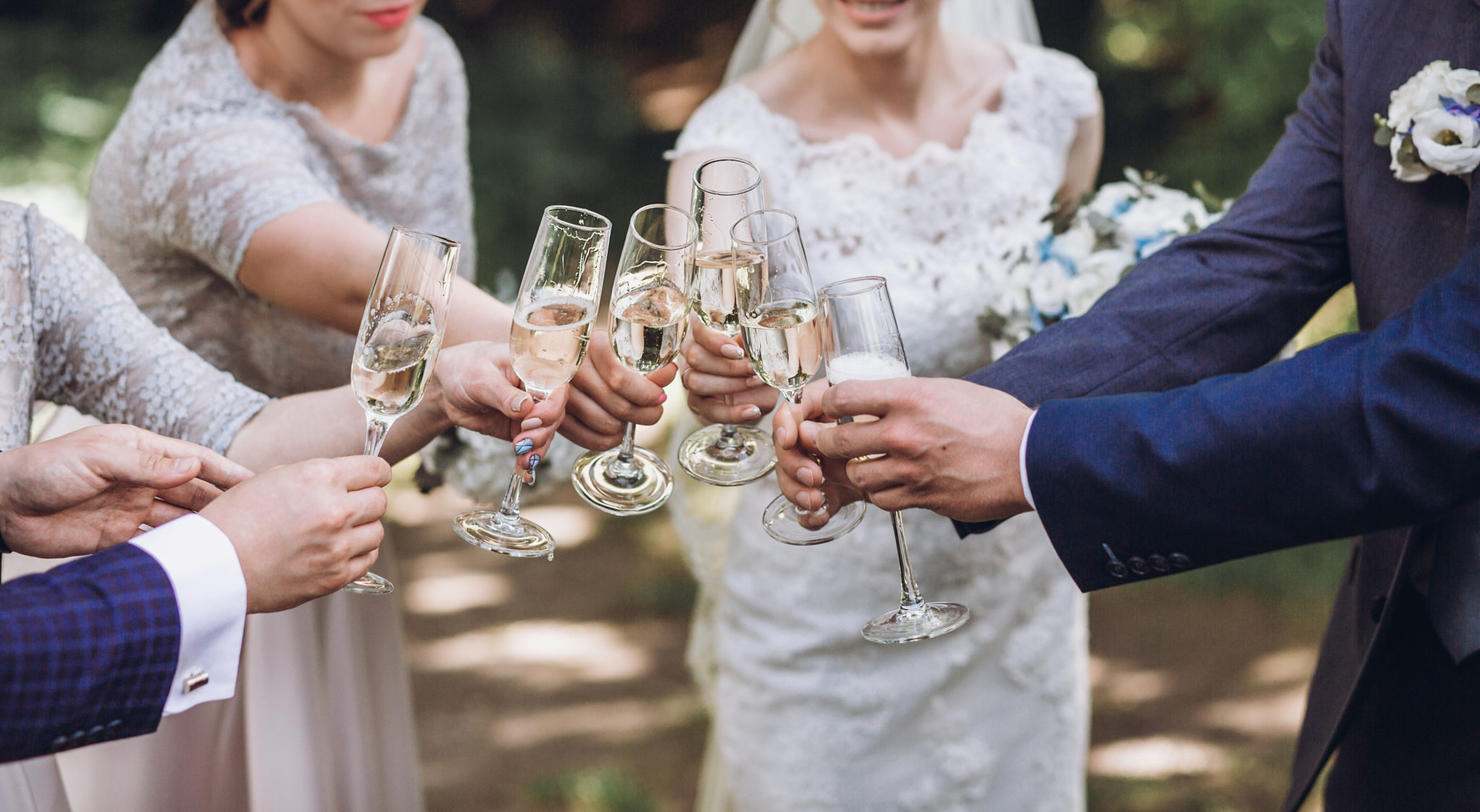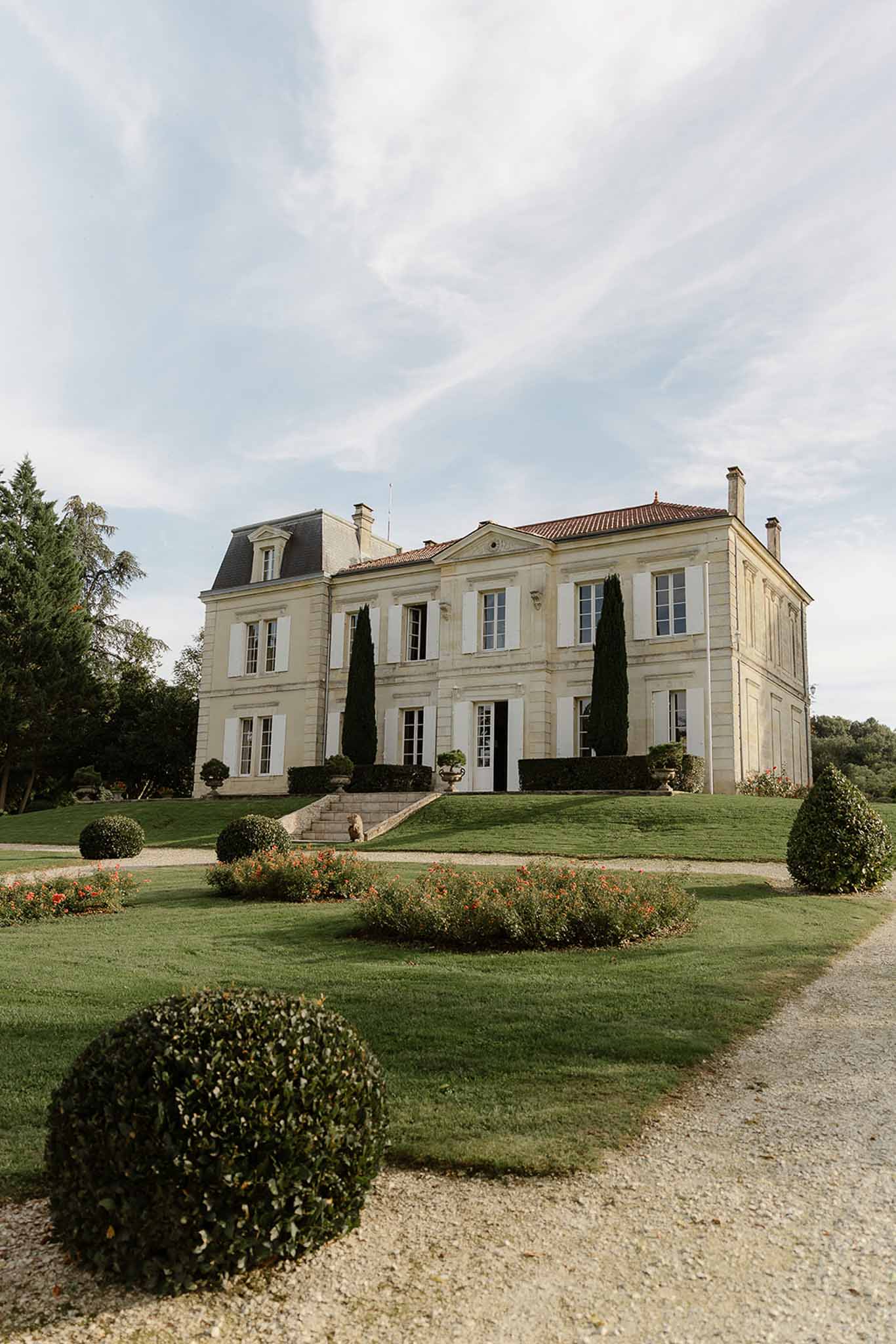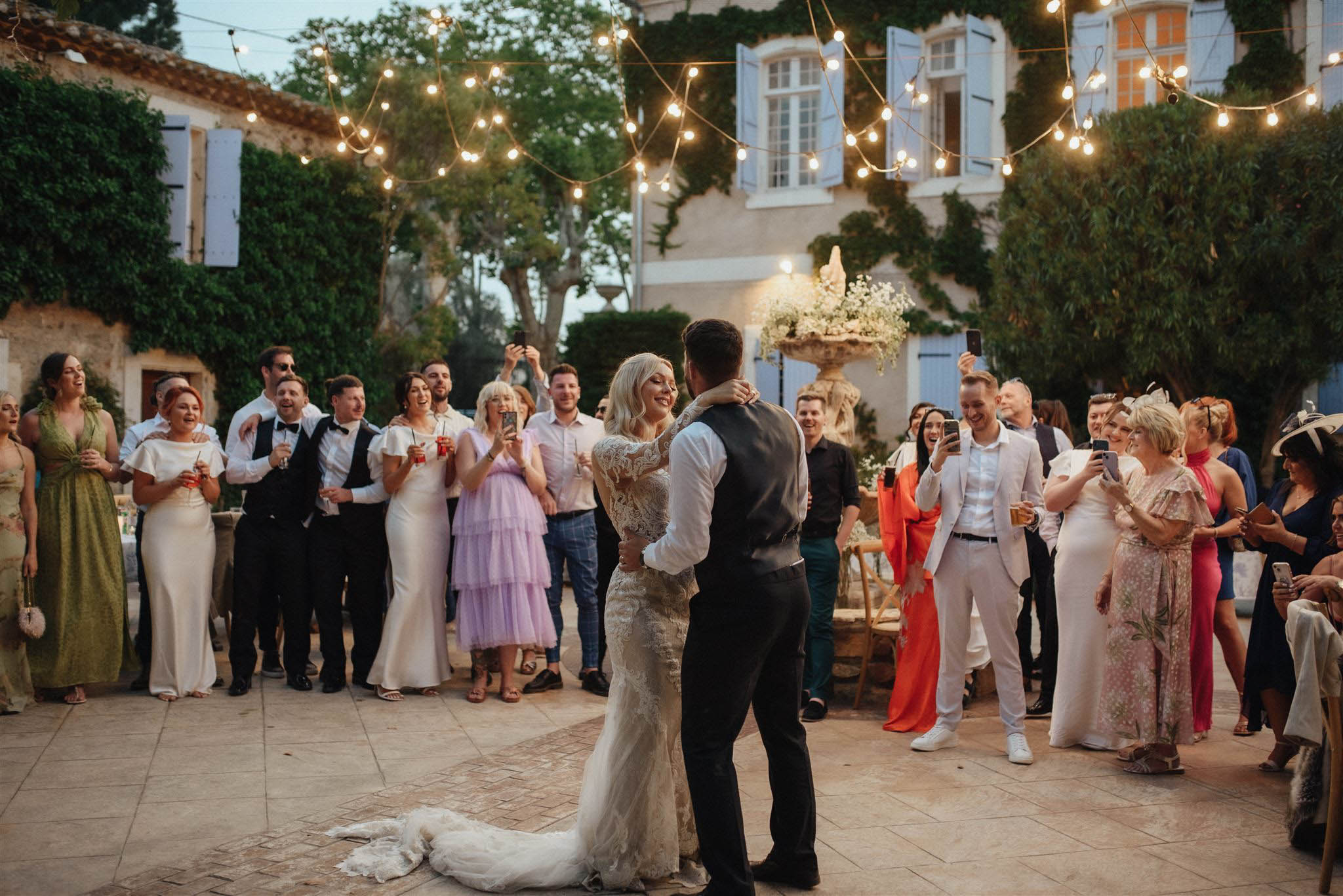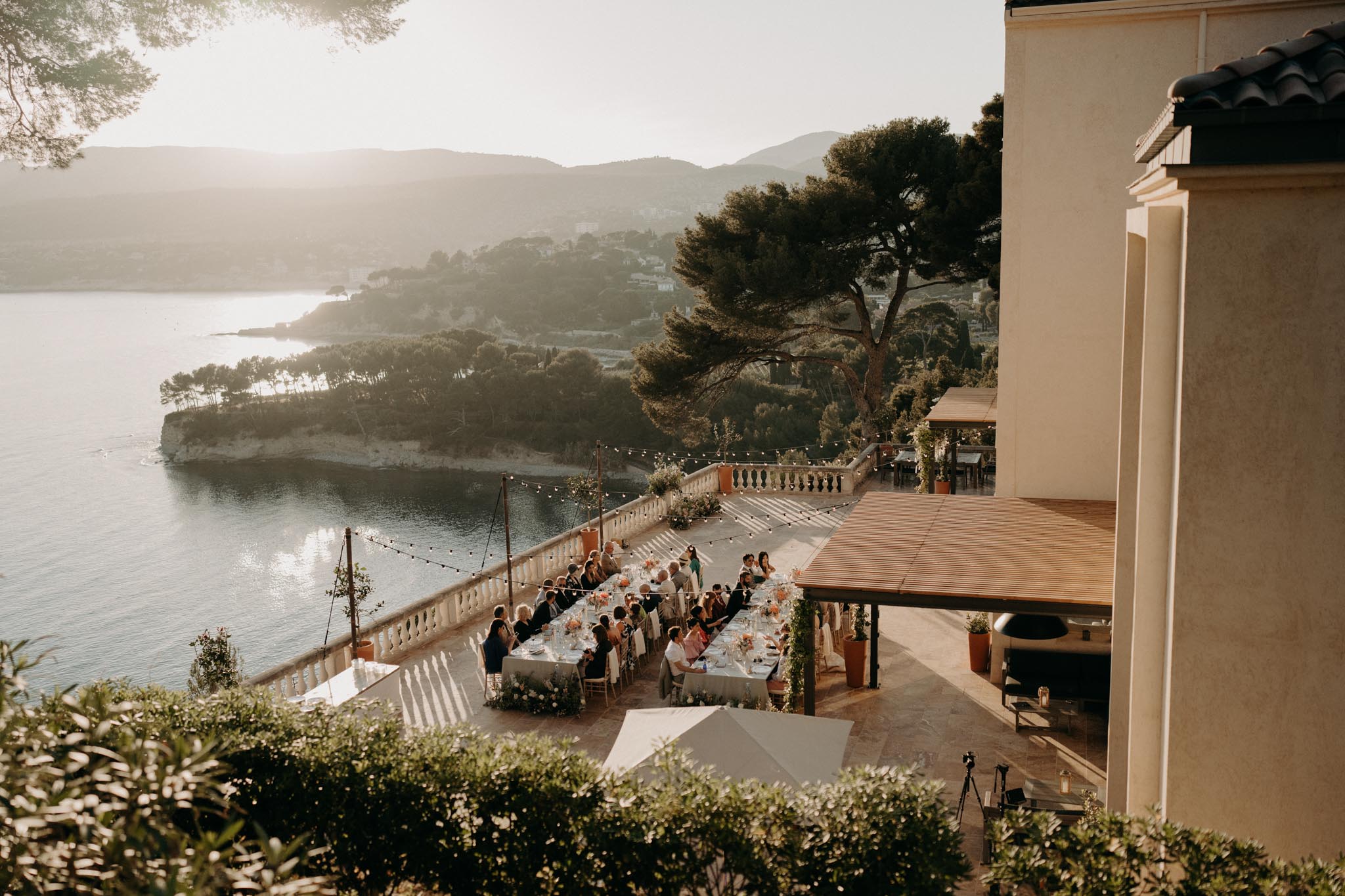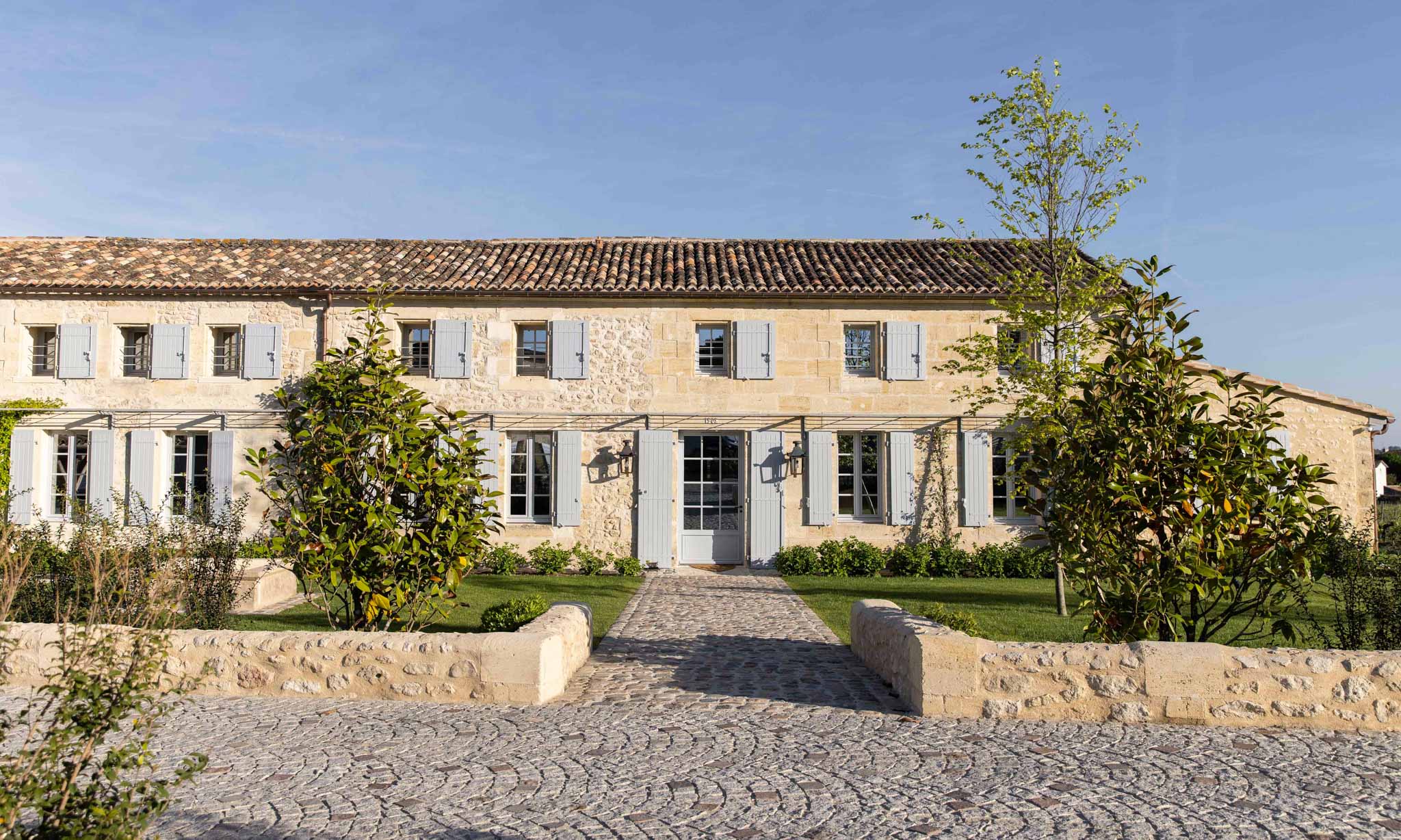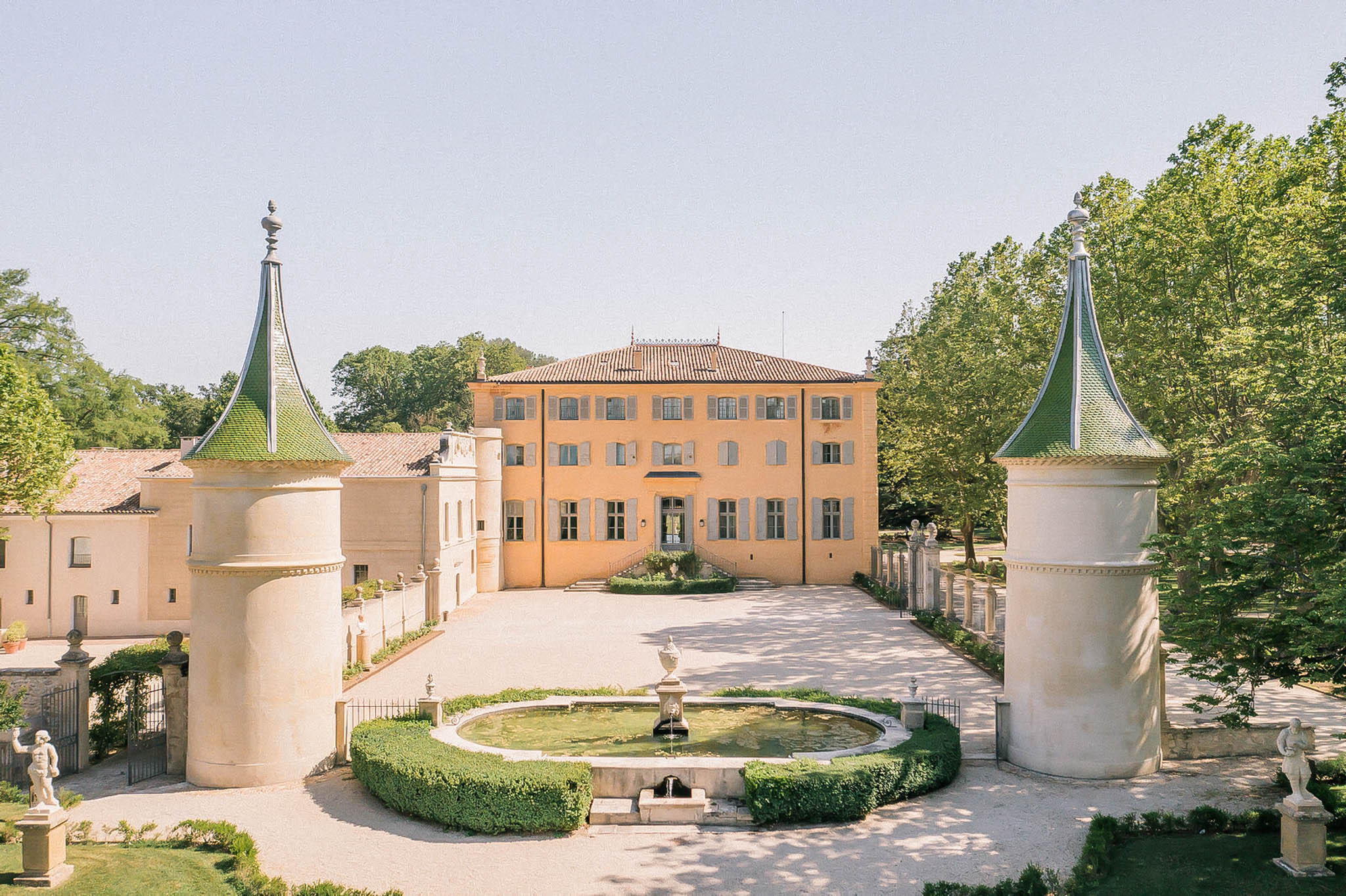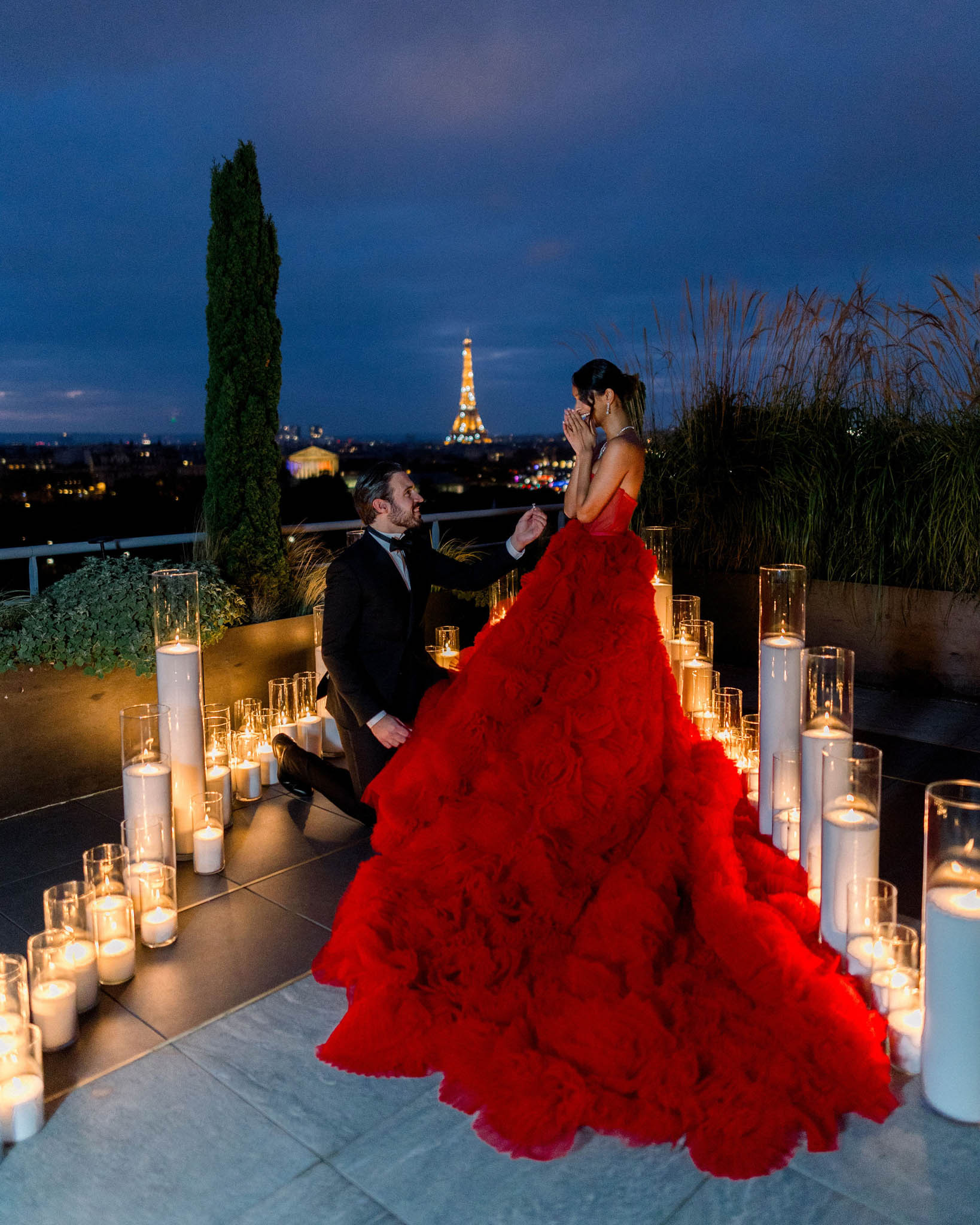The allure of French wedding traditions extends far beyond the romance of Paris or the charm of countryside châteaux. A typical French wedding often spans over 2 days with celebrations lasting well into the night with multiple courses of food, heartfelt speeches, and lively festivities. These time-honored customs weave together centuries of cultural heritage with modern celebrations, creating ceremonies that honor both past and present. Whether you’re planning your wedding in Paris, Aquitaine, the South of France, or any other beautiful French destination, understanding these traditions can truly enhance your experience.
What are the Pre-Wedding Customs in French weddings?
What is the engagement tradition in France?
French couples celebrate their engagement with a formal gathering called “fiançailles,” where families unite. Traditionally, the engagement remains secret from friends until announced to family. While many modern couples skip the secrecy, they still host a gathering to announce the news and capture these early moments.
What is the significance of the trousseau and Wedding Armoire?
One of the oldest French wedding traditions is the trousseau – a collection of items the bride prepares for married life. This includes wedding dresses, lingerie, and linens for the new home, often embroidered with the bride’s married initials. These items are stored in a Wedding Armoire or Hope Chest, traditionally carved by the bride’s father.
What are the Ceremonial Traditions in French weddings?
What is a civil ceremony in France?
In France, couples must have a civil ceremony at the town hall, led by the mayor or an authorized official. This brief, formal ceremony typically includes close family and witnesses, with the public allowed to attend and voice objections if necessary.
What is a symbolic wedding in France?
Following the civil ceremony, many couples hold a symbolic ceremony in a church, chateau, or outdoor venue. This more personal celebration often includes traditional elements like the groom walking with his mother and the bride being escorted by her father.
What is the order of the bridal procession in France?
The traditional French bridal procession begins with the groom walking down the aisle with his mother, followed by flower girls, ring bearers, and finally the bride escorted by her father, emphasizing the importance of family.
Who are the witnesses at a French wedding?
Unlike other countries’ traditions of bridesmaids and groomsmen, French weddings feature “witnesses” – one or two per couple – who play an official role in the ceremony.
What to Wear at a French Wedding?
What do French brides wear?
French brides typically choose their style based on region and season. Southern brides often select flowing dresses in breathable lace or linen, while northern brides prefer heavier fabrics like silk mikado, satin, and crepe for cooler months.
What to wear to a French wedding as a guest?
Female guests, especially at traditional rural weddings, often wear fascinators or hats during church ceremonies, adding sophistication and showing respect for the occasion.
What are the Traditional Reception Elements in a French Wedding?
What is the wine of honor?
After the ceremony, guests enjoy a lengthy cocktail hour called “Le Vin d’Honneur”, lasting two to three hours. This social gathering features appetizers like pâté, veggie tarts, and French cheeses, accompanied by local wines.
For couples looking to add a stylish twist, bar carts for weddings are a perfect way to serve signature drinks or create personalized beverage stations that impress guests.
What is a traditional wedding meal?
French wedding menus often showcase dishes featuring beef, duck, and fish. The traditional croquembouche – a tower of cream-filled pastries bound with caramel – serves as the wedding cake.
How long does a French wedding last?
French weddings typically continue until early morning, often ending between 4 and 6 am Before departure, guests enjoy onion soup to recover from the festivities.
What are the Unique Customs in French Weddings?
What is the white ribbon cutting at a French wedding?
In some villages, children stretch white ribbons across the road for the bride to cut, symbolizing the overcoming of marriage obstacles. Modern couples often cut a heart-shaped white sheet instead.
What is la coupe de mariage?
This engraved silver cup, passed down through generations, is used for special toasts by newlyweds. It’s also a popular wedding gift, typically engraved with the couple’s wedding date.
What is the gift etiquette for weddings in France?
Add a personal touch to your celebrations by creating DIY gift bags filled with regional treats like lavender sachets, artisanal soaps, or small bottles of Provençal wine. These thoughtful favors reflect the beauty of French culture and show appreciation to your guests.
What are Traditional Wedding Gifts in France?
What are French dragees?
Guests receive five sugared almonds symbolizing health, wealth, happiness, fertility, and longevity.
The Champagne Tower
A popular tradition at French weddings is a champagne tower, where couples carefully stack glasses in a pyramid and pour champagne from top to bottom, symbolizing joy and abundance.
Incorporating French Flair into Pre-Wedding Celebrations
For a truly authentic experience, consider hosting a French-inspired bachelorette party . From chic picnics in Parisian gardens to wine tastings in Bordeaux, this celebration sets the tone for a sophisticated wedding in France.
If you’re embracing a rustic wedding aesthetic, don’t miss the key ingredients of a French country wedding for décor, style, and food inspiration that beautifully blends countryside charm with timeless elegance.
Frequently Asked Questions
What is the father-daughter dance in French weddings?
The father-daughter dance typically begins the dancing portion of the reception. The bride dances first with her father, then he hands her over to the groom to complete the dance together.
Why do French weddings have all-night festivities?
French weddings are known for their long, lively parties. After dinner, the dancing begins around midnight and continues into the early morning.
What is the cultural significance of French wedding traditions?
French wedding traditions reflect cultural values central to French heritage, emphasizing family unity, romance, and celebration.
Who traditionally pays for the wedding in France?
Traditionally, the bride’s family covers most costs, including venue, ceremony, and meal, while the groom’s family handles the reception and honeymoon. Today, couples and both families often share expenses.
Why don’t French weddings have bridesmaids or groomsmen?
Instead of bridesmaids or groomsmen, French weddings have witnesses who play an official role in the ceremony, making the event more personal and less formal.
Why incorporate French Wedding Traditions into Your Wedding!
French wedding traditions combine sophistication, symbolism, and cultural depth, making them unique. These traditions honor both heritage and modern celebration, creating memories that last generations while maintaining the authentic spirit of French culture.


